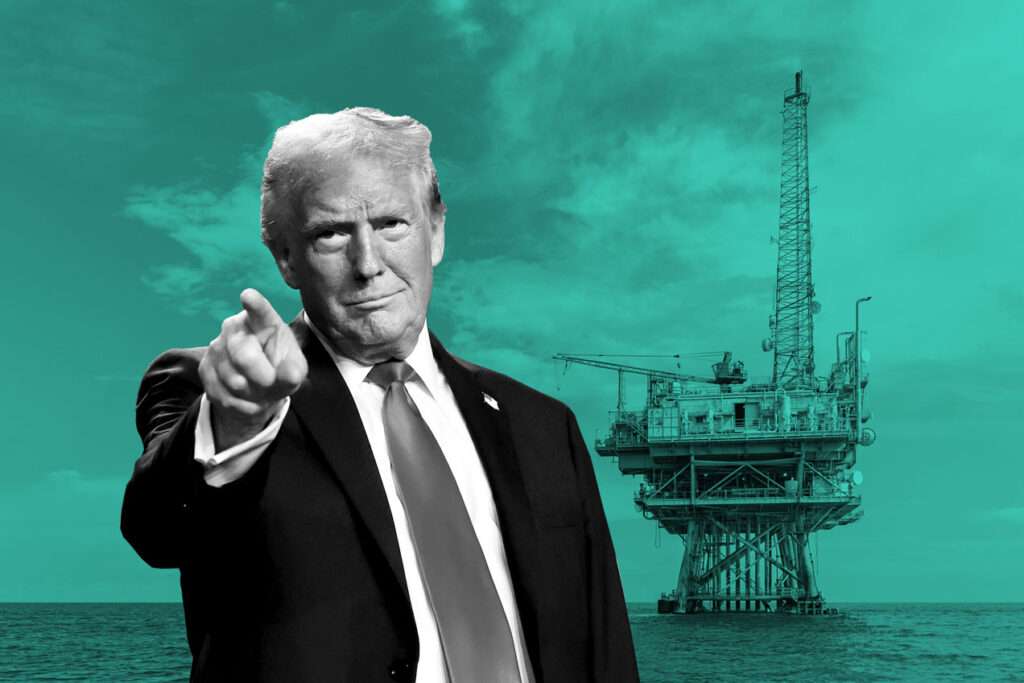The White House has launched an aggressive push to boost U.S. fossil fuel production with the formation of the National Energy Dominance Council, a new body mandated to streamline regulations and encourage private-sector investment in energy development.
This directive, formalized through an executive order signed by President Donald Trump, marks a significant shift in national energy policy aimed at expanding domestic oil and gas production.
During the announcement of the council’s establishment, President Trump emphasized his administration’s commitment to positioning the United States as the global leader in energy production.
“We’re going to be energy dominant like nobody else.
“We’re going to make more money than anybody’s ever made with energy.”
US President Donald Trump
This rhetoric underscores the administration’s strategy to remove barriers that have hindered fossil fuel projects in the past, reversing many of the regulatory measures implemented under the previous administration.
President Trump appointed Interior Secretary Doug Burgum to lead the National Energy Dominance Council, entrusting him with the task of coordinating energy policy across multiple federal agencies.
The council will oversee agencies responsible for power regulation, permitting, production, distribution, and transportation, ensuring a cohesive and expedited approach to energy project approvals.
Burgum, echoing Trump’s energy vision, criticized the previous administration’s approach to fossil fuels.
“President Trump wisely understood that under the Biden administration, there was a war against American energy,” Burgum said. “Today that war officially has ended.”
A primary objective of the council will be to eliminate bureaucratic red tape and facilitate a business-friendly environment for energy investors, accelerating the timeline for domestic fossil fuel projects.
Alongside the council’s formation, the Trump administration has initiated several measures to expand U.S. fossil fuel output.
Among these is the conditional approval of a major liquefied natural gas (LNG) export project in Louisiana, the first such approval since former President Joe Biden had imposed a pause on new LNG export authorizations a year ago.
Energy Secretary Chris Wright confirmed that the project, led by Commonwealth LNG, will receive the necessary permissions to construct a new facility with an annual production capacity of 9.5 million tons of liquefied natural gas.
“Exporting American LNG strengthens the U.S. economy and supports American jobs while bolstering energy security around the world.
“I am proud to be working with President Trump to get American energy exports back on track.”
Energy Secretary Chris Wright
The approval, however, is still subject to a final decision by the independent Federal Energy Regulatory Commission (FERC). Nonetheless, Commonwealth LNG remains optimistic that the necessary approvals will be secured, with expectations of commencing production in early 2029.
Revival of the Constitution Pipeline

Another major initiative under the Trump administration’s energy expansion agenda is the revival of the long-canceled Constitution Pipeline.
The pipeline, initially proposed to transport natural gas from Pennsylvania to New York, was blocked due to environmental concerns and regulatory hurdles imposed by New York state authorities.
Trump emphasized that reviving the project could significantly lower energy costs in the northeastern United States, stating that the pipeline had been “held up by New York for 20 years.”
“We are also working on a project that has been under wraps for 20 years.
“Everybody wanted it. It’s been held up by New York. It’s a pipeline that will bring down energy prices in New York and in all of New England.”
US President Donald Trump
Supporters of the project argue that it could reduce energy costs in the region by as much as 70%, addressing longstanding supply constraints that have led to periodic energy shortages and high consumer prices.
The formation of the National Energy Dominance Council and the Trump administration’s sweeping efforts to boost domestic oil and gas production signal a dramatic shift in U.S. energy policy.
By streamlining regulations, expediting fossil fuel projects, and reviving previously canceled initiatives, the administration aims to cement America’s position as a dominant player in the global energy market.
While these policies are expected to generate significant economic benefits and enhance energy security, they also reignite debates over environmental sustainability and the long-term viability of fossil fuels.
As the administration moves forward with its energy agenda, the balance between economic growth and environmental responsibility remains a critical issue in shaping the future of U.S. energy policy.
READ ALSO: Ama Pratt Urges Reforms to Decongest Prisons



















